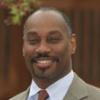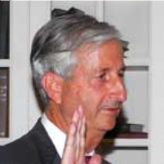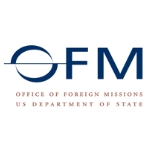A Federal agency within the Department of State, OFM claims three basic missions: 1) to provide services for foreign diplomats living in the United States, 2) to monitor the activities of these foreign diplomats so that they do not abuse their immunity status, and 3) to treat foreign diplomats in such a way that their countries will treat U.S. diplomats stationed overseas in the same manner. OFM is authorized to impose restrictions of services on a foreign government and its diplomats if that government imposes them on the U.S. OFM is also authorized to enter into negotiations with that country to remove those restrictions once secure, fair treatment is given American officials in the other country.
OFM was established by Congress as an advocate for U.S. diplomatic treatment abroad, pursuant to the Foreign Missions Act of 1982. That Act gave the United States government jurisdiction over the operation of foreign diplomatic and consular missions and their personnel in the U.S., including responsibility for regulating various activities of the foreign personnel and dependents, as well as facilitating the benefits they are to receive in reciprocation for providing similar privileges to American diplomats in their countries. Those privileges are defined by the Vienna Convention on Diplomatic Relations, and the Vienna Convention on Consular Relations, which cover four functional areas: the acquisition, ownership, and sale of real property; customs duty-free entry; tax exemption; and travel. A Diplomatic Motor Vehicles Program was established in 1984, through which OFM is also to supply a full range of motor vehicle services for the foreign mission community.
- Works closely, as a directorate of the Bureau of Diplomatic Security, with that Bureau's Protective Liaison Division, and the Foreign Missions Branch of the U.S. Secret Service, to ensure the safety and security of foreign missions and their personnel; also provides, with the Bureau of Consular Affairs, the Office of Protocol, and other Diplomatic Security offices, briefings, seminars, specialized training, and consultation on security-related topics.
- Maintains relationships with U.S. law enforcement and security communities at the national, state, and local levels to continually educate and update them on diplomatic privilege and immunity issues.
- Works with the State Department Offices of Protocol and Legal Adviser to formulate policies that prevent the abuse of diplomatic privileges and immunities by foreign mission communities.
- Authorizes, out of its Property Program, the purchase, lease, sale, or expansion of real property to foreign missions, providing guidance to those foreign missions, as well as to local governments, attorneys, and real estate brokers regarding zoning and related matters. Also oversees the preservation and maintenance of foreign mission properties of countries with which the U.S. no longer has diplomatic relations.
- Administers the tax-exemptions program for foreign missions and their members, including relief from sales, utility, vehicle purchase, and fuel taxes, applicable when reciprocity is given in a mission's country for Americans serving there.
- Issues, through its Diplomatic Motor Vehicles Program, registrations, titles, license plates, and driver's licenses, and enforces mandatory liability insurance coverage and payment by foreign mission personnel for traffic tickets, as well as sees that any irresponsible diplomatic drivers are held accountable. As of September 2007, there were 11,619 diplomatic licenses in use.
- Monitors, through its Travel Program, travel controls established for reciprocity or national security reasons, placing and lifting restrictions as situations warrant, with all mission personnel required to get OFM permission to travel.
- Works toward further efficiency and reliability of the movement of items shipped to and from missions worldwide, and regulates eligibility of duty-free importation for the foreign mission community, as well as their eligibility to purchase duty-free items from bonded warehouse retailers, depending on their country's applicable treatment of American diplomats serving there; also helps resolve various incidents that may occur, from a lost item to an unauthorized inspection of a package.
- Facilitates proper handling of accreditation and status paperwork for foreign mission personnel, and manages requests for Social Security numbers by eligible mission diplomats and staff.
- Provides Department of State Escort Officers for airport departures for eligible senior officials, accompanying spouse, and dependents under twelve, conferring the same screening courtesies and exemptions currently received by senior officials being escorted by a U.S. Secret Service or Diplomatic Security Service protective detail.
- Table of Contents
- Overview
- History
- What it Does
- Where Does the Money Go
- Controversies
- Suggested Reforms
- Comments
- Leave a comment

On May 1, 2014, President Barack Obama nominated Gentry O. Smith, a career Foreign Service officer, to be director of the Office of Foreign Missions with ambassadorial rank during his tenure. Smith appeared before the Senate Foreign Relations Committee on June 11.
Smith, 54, is from Weldon, North Carolina, and attended North Carolina State University, graduating in 1983 with a B.A. in political science. He served for a time as a police officer in Raleigh, North Carolina, before joining the State Department in 1987.
He started in diplomatic security in the department’s Washington field office. In 1989, Smith got his first overseas posting, as assistant regional security officer in Cairo, Egypt. He came home in 1991 to be part of the Secretary of State’s protective detail.
In 1994, Smith became a criminal investigative liaison officer for the State Department, serving in that role for two years. He went overseas again in 1996 to serve as regional security officer in Rangoon (Yangon), Burma.
Smith returned to the United States in 1999 for training at the Foreign Service Institute. In 2000, he went back to Cairo as deputy regional security officer. He was named regional security officer in Tokyo four years later.
After his stint in Tokyo, Smith was named director of the Office of Physical Security Programs. His next post was as deputy assistant secretary and assistant director for countermeasures in October 2009 and he held that job until his nomination to lead the Office of Foreign Missions.
As director of the Office of Foreign Missions, Smith will be responsible for ensuring fair treatment for U.S. missions in other countries and assisting those attached to foreign missions in this country.
Smith and his wife Georgette, also a North Carolina State graduate, have three children.
-Steve Straehley
To Learn More:
Nomination Testimony (pdf)

- Latest News
- D.C. Public Schools will Teach all Second-Graders to Ride a Bike
- New Rule in Germany Limits Sales of Sex-Themed E-Books to 10pm to 6am
- What Happened to the 6-Year-Old Tibetan Boy the Chinese Government Kidnapped 20 Years Ago?
- U.S. Ambassador to Turkey Photoshops his Hair Color to Mock Turkish Mayor
- Mystery Artist Calls Attention to Unfixed Potholes by Drawing Penises around Them
A Federal agency within the Department of State, OFM claims three basic missions: 1) to provide services for foreign diplomats living in the United States, 2) to monitor the activities of these foreign diplomats so that they do not abuse their immunity status, and 3) to treat foreign diplomats in such a way that their countries will treat U.S. diplomats stationed overseas in the same manner. OFM is authorized to impose restrictions of services on a foreign government and its diplomats if that government imposes them on the U.S. OFM is also authorized to enter into negotiations with that country to remove those restrictions once secure, fair treatment is given American officials in the other country.
OFM was established by Congress as an advocate for U.S. diplomatic treatment abroad, pursuant to the Foreign Missions Act of 1982. That Act gave the United States government jurisdiction over the operation of foreign diplomatic and consular missions and their personnel in the U.S., including responsibility for regulating various activities of the foreign personnel and dependents, as well as facilitating the benefits they are to receive in reciprocation for providing similar privileges to American diplomats in their countries. Those privileges are defined by the Vienna Convention on Diplomatic Relations, and the Vienna Convention on Consular Relations, which cover four functional areas: the acquisition, ownership, and sale of real property; customs duty-free entry; tax exemption; and travel. A Diplomatic Motor Vehicles Program was established in 1984, through which OFM is also to supply a full range of motor vehicle services for the foreign mission community.
- Works closely, as a directorate of the Bureau of Diplomatic Security, with that Bureau's Protective Liaison Division, and the Foreign Missions Branch of the U.S. Secret Service, to ensure the safety and security of foreign missions and their personnel; also provides, with the Bureau of Consular Affairs, the Office of Protocol, and other Diplomatic Security offices, briefings, seminars, specialized training, and consultation on security-related topics.
- Maintains relationships with U.S. law enforcement and security communities at the national, state, and local levels to continually educate and update them on diplomatic privilege and immunity issues.
- Works with the State Department Offices of Protocol and Legal Adviser to formulate policies that prevent the abuse of diplomatic privileges and immunities by foreign mission communities.
- Authorizes, out of its Property Program, the purchase, lease, sale, or expansion of real property to foreign missions, providing guidance to those foreign missions, as well as to local governments, attorneys, and real estate brokers regarding zoning and related matters. Also oversees the preservation and maintenance of foreign mission properties of countries with which the U.S. no longer has diplomatic relations.
- Administers the tax-exemptions program for foreign missions and their members, including relief from sales, utility, vehicle purchase, and fuel taxes, applicable when reciprocity is given in a mission's country for Americans serving there.
- Issues, through its Diplomatic Motor Vehicles Program, registrations, titles, license plates, and driver's licenses, and enforces mandatory liability insurance coverage and payment by foreign mission personnel for traffic tickets, as well as sees that any irresponsible diplomatic drivers are held accountable. As of September 2007, there were 11,619 diplomatic licenses in use.
- Monitors, through its Travel Program, travel controls established for reciprocity or national security reasons, placing and lifting restrictions as situations warrant, with all mission personnel required to get OFM permission to travel.
- Works toward further efficiency and reliability of the movement of items shipped to and from missions worldwide, and regulates eligibility of duty-free importation for the foreign mission community, as well as their eligibility to purchase duty-free items from bonded warehouse retailers, depending on their country's applicable treatment of American diplomats serving there; also helps resolve various incidents that may occur, from a lost item to an unauthorized inspection of a package.
- Facilitates proper handling of accreditation and status paperwork for foreign mission personnel, and manages requests for Social Security numbers by eligible mission diplomats and staff.
- Provides Department of State Escort Officers for airport departures for eligible senior officials, accompanying spouse, and dependents under twelve, conferring the same screening courtesies and exemptions currently received by senior officials being escorted by a U.S. Secret Service or Diplomatic Security Service protective detail.
Comments

On May 1, 2014, President Barack Obama nominated Gentry O. Smith, a career Foreign Service officer, to be director of the Office of Foreign Missions with ambassadorial rank during his tenure. Smith appeared before the Senate Foreign Relations Committee on June 11.
Smith, 54, is from Weldon, North Carolina, and attended North Carolina State University, graduating in 1983 with a B.A. in political science. He served for a time as a police officer in Raleigh, North Carolina, before joining the State Department in 1987.
He started in diplomatic security in the department’s Washington field office. In 1989, Smith got his first overseas posting, as assistant regional security officer in Cairo, Egypt. He came home in 1991 to be part of the Secretary of State’s protective detail.
In 1994, Smith became a criminal investigative liaison officer for the State Department, serving in that role for two years. He went overseas again in 1996 to serve as regional security officer in Rangoon (Yangon), Burma.
Smith returned to the United States in 1999 for training at the Foreign Service Institute. In 2000, he went back to Cairo as deputy regional security officer. He was named regional security officer in Tokyo four years later.
After his stint in Tokyo, Smith was named director of the Office of Physical Security Programs. His next post was as deputy assistant secretary and assistant director for countermeasures in October 2009 and he held that job until his nomination to lead the Office of Foreign Missions.
As director of the Office of Foreign Missions, Smith will be responsible for ensuring fair treatment for U.S. missions in other countries and assisting those attached to foreign missions in this country.
Smith and his wife Georgette, also a North Carolina State graduate, have three children.
-Steve Straehley
To Learn More:
Nomination Testimony (pdf)

- Latest News
- D.C. Public Schools will Teach all Second-Graders to Ride a Bike
- New Rule in Germany Limits Sales of Sex-Themed E-Books to 10pm to 6am
- What Happened to the 6-Year-Old Tibetan Boy the Chinese Government Kidnapped 20 Years Ago?
- U.S. Ambassador to Turkey Photoshops his Hair Color to Mock Turkish Mayor
- Mystery Artist Calls Attention to Unfixed Potholes by Drawing Penises around Them






Comments